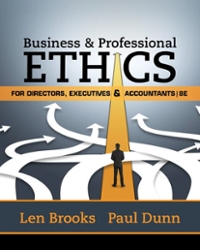According to the Royal Ahold company profile, Ahold is a global family of local food retail and
Question:
According to the Royal Ahold company profile, Ahold is a global family of local food retail and foodservice operators that operate under their own brand names. Our operations are located primarily in the United States and Europe.
Our retail business consists of retail chain sales, sales to franchise stores and sales to associated stores.
The store format that we primarily use is the supermarket. Through our foodservice operations we distribute food, and offer services and expertise to restaurants and hotels, health care institutions, government facilities, universities, sports stadiums and caterers.
In 2003, our consolidated net sales were Euro 56.1 billion, our retail trade and foodservice businesses representing approximately 70% and 30% of this total, respectively. At the end of 2003, Ahold’s average number of employees in full-time equivalents totaled 256,649 worldwide.1 The company is listed on the Dutch and U.S.2 stock markets. Ahold was one of the first large Dutch or European companies to implement U.S.-style large stock option compensation schemes for its managers, and that may have led to its downfall in late 2002 and early 2003.3 In 2002, Ahold claimed to be the world’s third-largest retail group. However, due to unfavorable market conditions, the company had lower-than-expected U.S. sales.
For years, the company outperformed its peers, expanding aggressively, but the expansion left Ahold with \($12\) billion in debt, one of the largest in the sector. In July, the company revised its full-year EPS growth target to 5% to 8%. The company’s figures revealed a 6% fall in its core food service business in the United States and a 10% fall in the value of Ahold shares. In October, some investors suggested that Ahold’s chief executive, Cees van der Hoeven, leaked the sales numbers to certain analysts and the share price suffered a first drop.
In February 2003, the company announced that net earnings and earnings per share would be significantly lower than previously indicated for fiscal 2002. In the same month, the company disclosed that its financial statements for fiscal 2000 and fiscal 2001 would be restated. A press release indicated that the restatements related primarily to overstatements of income related to vendor promotional allowance programs at its subsidiary, U.S. Foodservice. Managers of the subsidiary booked much higher promotional allowances (provided by vendors to promote their merchandise)
than the company was to actually receive. Ahold estimated the amount of the overstatement to be close to \($500\) million.
Other irregularities under investigation were the legality and accounting treatment of questionable transactions at the Argentine subsidiary, Disco. Certain joint ventures were consolidated based on misrepresentations to Ahold’s auditors. CEO Cees van der Hoeven and CFO Michiel Meurs resigned immediately.
The SEC and the Dutch stock exchange Euronext investigated the irregularities, requiring Ahold to present documentation from 1999 to 2003. The company said the irregularities only began in 2001.........
Questions:-
1. A vendor may offer a customer a rebate of a specified amount of cash or other consideration that is payable only if the customer completes a specified cumulative level of purchases or remains a customer for a specified period of time. When should the rebate be recognized as revenue? At what value should the rebate be recorded as revenue?
2. The SEC investigation found the individuals involved in the fraud “aided and abetted the fraud by signing and sending to the company’s independent auditors confirmation letters that they knew materially overstated the amounts of promotional allowance income paid or owed to U.S.
Foodservice.” Is the confirmation procedure enough to validate the vendor’s allowance amount in the financial statements?
3. The SEC investigation also revealed that “a significant portion of U.S.
Foodservice operating income was based on vendor payments known as promotional allowances.” How might irregularities have been discovered through specific external audit procedures?
4. Royal Ahold made several changes in its corporate governance structure.
Discuss how those changes will mitigate the risk of accounting fraud in future years.
Step by Step Answer:

Business And Professional Ethics
ISBN: 9781337514460
8th Edition
Authors: Leonard J Brooks, Paul Dunn





